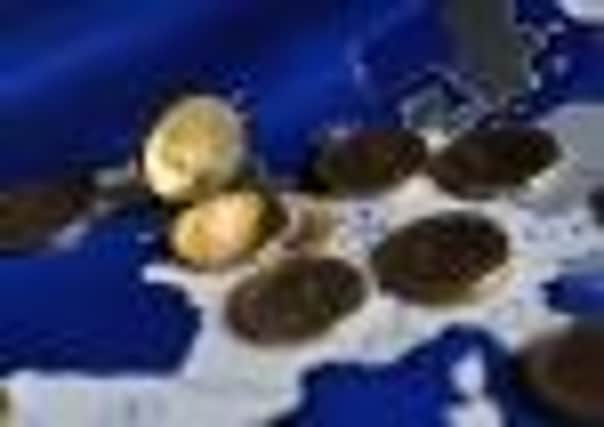Scottish independence: Fresh doubts over voice within sterlingzone


The USA, Australia, Switzerland and South Africa all told The Scotsman they retaind full autonomy over issues such as the setting of interest rates, without offering a say to nearby nations which also used the same currency.
The SNP, which wants to keep the pound after independence, has argued that it would be able to influence the Bank of England on the crucial issue of money supply, given its importance to the UK economy.
Advertisement
Hide AdAdvertisement
Hide AdYesterday, deputy First Minister Nicola Sturgeon said Scotland would, if required, pay the Bank of England to provide “lender of last resort” facilities to Scottish Banks, to ensure the country was copper-bottomed.
The SNP insist it is wrong to compare the UK position with other international models as Scotland is not planning to take the pound, but opting to continue with its use. However, their opponents said the global picture showed up the lack of clarity over how an independent Scotland using the pound would operate.
The Treasury is also calling on the SNP to clarify whether it wants a full monetary union with the rest of the UK, or a looser deal where it shares the pound.
At First Minister’s Questions two weeks ago, Mr Salmond hinted at a formal deal, saying Scotland would “expect to be part of the appointments process” of the Bank of England’s monetary policy committee (MPC). He added: “There is nothing unusual about that… these are arrangements that are put in place between independent countries.”
In the case of the USA, Panama, El Salvador and Equador are all “dollarised” countries. A spokesman for the US Federal Reserve said: “Dollarised countries do not have any role in the Federal Reserve’s formulation of US monetary policy.”
Switzerland has, since the 1920s, had a currency sharing arrangement with Liechtenstein, which is now part of the Swiss franc currency area. A spokesman for the Swiss National Bank said that the two countries “inform and consult each other if need be”. But he added: “Liechtenstein does not have any formal role in setting the monetary policy.”
In Southern Africa, a common monetary area (CMA) covers South Africa, Lesotho, Namibia and Swaziland. The smaller nations have a “very limited” degree of freedom on interest rate policy and their central banks meet the South African Central Bank to discuss economic developments three times a year.
However, a spokesman for the South African Treasury said: “The smaller CMA partner countries do not sit on the South African MPC and have to accept the monetary policy decisions taken by the South African Reserve Bank as given.”
Advertisement
Hide AdAdvertisement
Hide AdThe International Monetary Fund also recently concluded there would be little point in giving the smaller countries a formal role. It added: “When the economic interests of the predominant country and smaller countries diverge, the former, by virtue of its size under a weighted voting structure, would ultimately prevail in monetary and exchange rate policy setting.”
In Australia, the tiny islands of Nauru, Kiribati and Tuvalu use the Australian dollar. A spokesman said: “They have no influence over the Reserve Bank of Australia and appoint no directors to the board.”
The situation after independence as envisaged by the SNP would be to keep the pound for at least a decade, with the Bank of England staying on as Scotland’s central bank.
Last week, Professor David Blanchflower, a former member of the MPC, said it was “probably not unreasonable” for an independent Scotland to have a seat on the Bank of England’s MPC.
On the international evidence, a spokesperson for finance secretary John Swinney said last night: “The situations are entirely different. The Bank of England, which was made independent in 1997, is already Scotland’s central bank – a point made by Governor Sir Mervyn King at the House of Lords economy committee in March – and sterling is already Scotland’s currency.”
• How might Scotland work after independence?
If you want to know the answer, then don’t miss the Economics of Independence conference, on 19 June, at The Scotsman head office.
Join John Swinney, Alistair Darling and Professor John Kay as they examine the key topics in this crucial debate on how independence would effect the Scottish economy.
See www.scotsmanconferences.com or call 0131 620 8656 for more information.